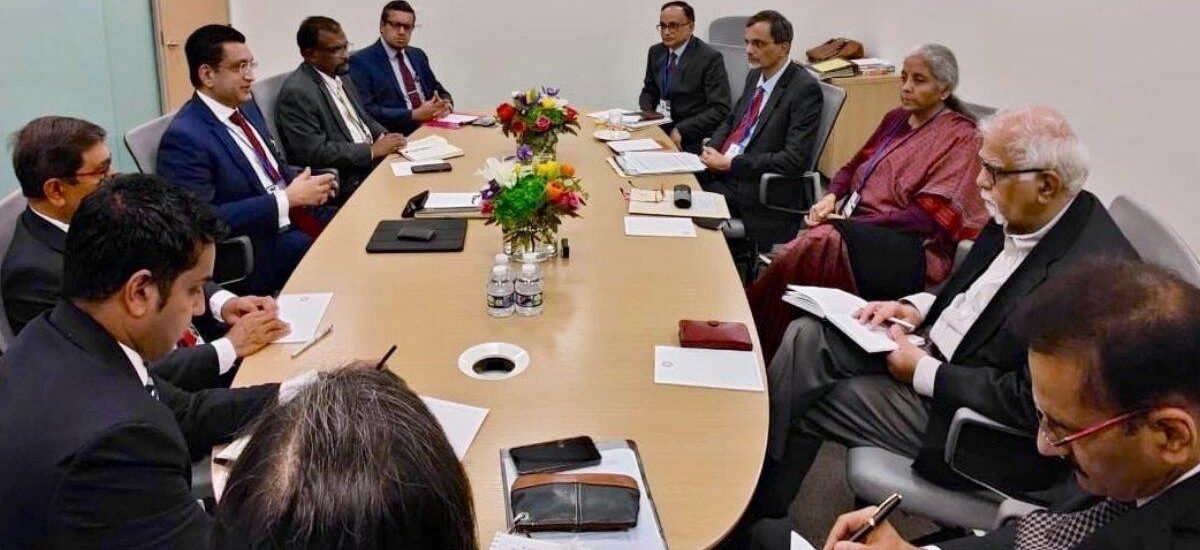The International Monetary Fund (IMF) has conducted a comprehensive Governance Diagnostic Assessment in Sri Lanka, revealing 16 priority recommendations aimed at enhancing governance, transparency, and accountability within the nation. These recommendations encompass various areas of governance, from anticorruption measures to fiscal governance reforms, with defined objectives and timelines for implementation.
The following is a breakdown of the priority recommendations:
-
Establish an Advisory Committee for Anticorruption: By November 2023, a Constitutional Council is advised to create an Advisory Committee, comprising independent anticorruption experts. This committee will assist in nominating members for the Commission to Investigate Allegations of Bribery or Corruption (CIABOC) and the Director General, with the aim of strengthening accountability and the rule of law.
-
Publication of Asset Declarations: The CIABOC is encouraged to publish the asset declarations of senior officials, including the President, Prime Minister, and ministers, on a designated website in line with Anticorruption Law by July 2024.
-
Proceeds of Crime Legislation: Enact legislation aligning with the United Nations Convention against Corruption (UNCAC) and Financial Action Task Force (FATF) standards by April 2024.
-
Amend National Audit Act: Modify the National Audit Act to empower the Auditor-General to levy surcharges on officers, including Chief Accounting Officers, who fail to oversee and ensure accountability for the use of public resources.
-
Beneficial Ownership Information: Finalize and implement regulations supporting the provision of beneficial ownership information as required by the Companies Act. Establish a public beneficial ownership registry by April 2024.
-
Public Procurement Law: Enact a Public Procurement Law reflecting international best practices by December 2024.
-
Increased Transparency in Procurement: Starting March 2024, publish comprehensive information about public procurement contracts above LKR 1 billion on a designated website, including contract award winners. Additionally, publish lists of firms receiving tax exemptions through the Board of Investment and the Strategic Development Projects, with estimates of the value of tax exemptions. This information should be updated every six months.
-
State-Owned Enterprise Reform: Implement the State-Owned Enterprise (SOE) Reform Policy, ensuring that the holding company (HoCo) and the advisory committee consist of skilled, independent, and ethical staff.
-
Strategic Development Projects Act: Abolish or suspend the application of the Strategic Development Projects Act until a transparent process for proposal evaluation and investment promotion condition costing is promulgated.
-
Tax Legislation Amendment: Amend tax legislation to eliminate or restrict ministerial authority to introduce tax changes without prior parliamentary approval, ensuring that such changes do not result in revenue losses.
-
Anti-Corruption Measures: Institute short-term anti-corruption measures within each revenue department to strengthen internal oversight and sanctioning processes, enhancing linkages with CIABOC and related criminal investigation and enforcement processes by December 2023. A public report on actions taken and results obtained should be issued by December 2024.
-
Employee Provident Fund Management: Following extensive consultation, produce a Cabinet policy paper by June 2024 outlining options for establishing new management arrangements for the Employee Provident Fund (EPF) that terminates direct Central Bank of Sri Lanka (CBSL) management.
-
Financial Sector Oversight: Revise legislation, regulations, and processes related to the financial sector, focusing on enhancing corporate governance for banks with government ownership, improving the selection of executives and Board members.
-
Digital Land Registry: Establish an online digital land registry by December 2024, providing regular progress reports on the Plan for registering/titling all state land.
-
Judicial Services Commission Enhancement: Develop and implement a plan to expand the resources and skills available to the Judicial Services Commission by December 2024. This initiative aims to enhance their ability to fulfill their function and explore potential governance modifications within the justice sector to strengthen oversight, monitoring, and sector development.
These recommendations, classified as short-term (ST) and medium-term (MT) measures, signify the IMF's commitment to supporting Sri Lanka's efforts to improve governance and create a more transparent and accountable environment within the nation. The implementation of these recommendations will be crucial in enhancing governance and fostering a conducive environment for sustainable economic growth and development.










